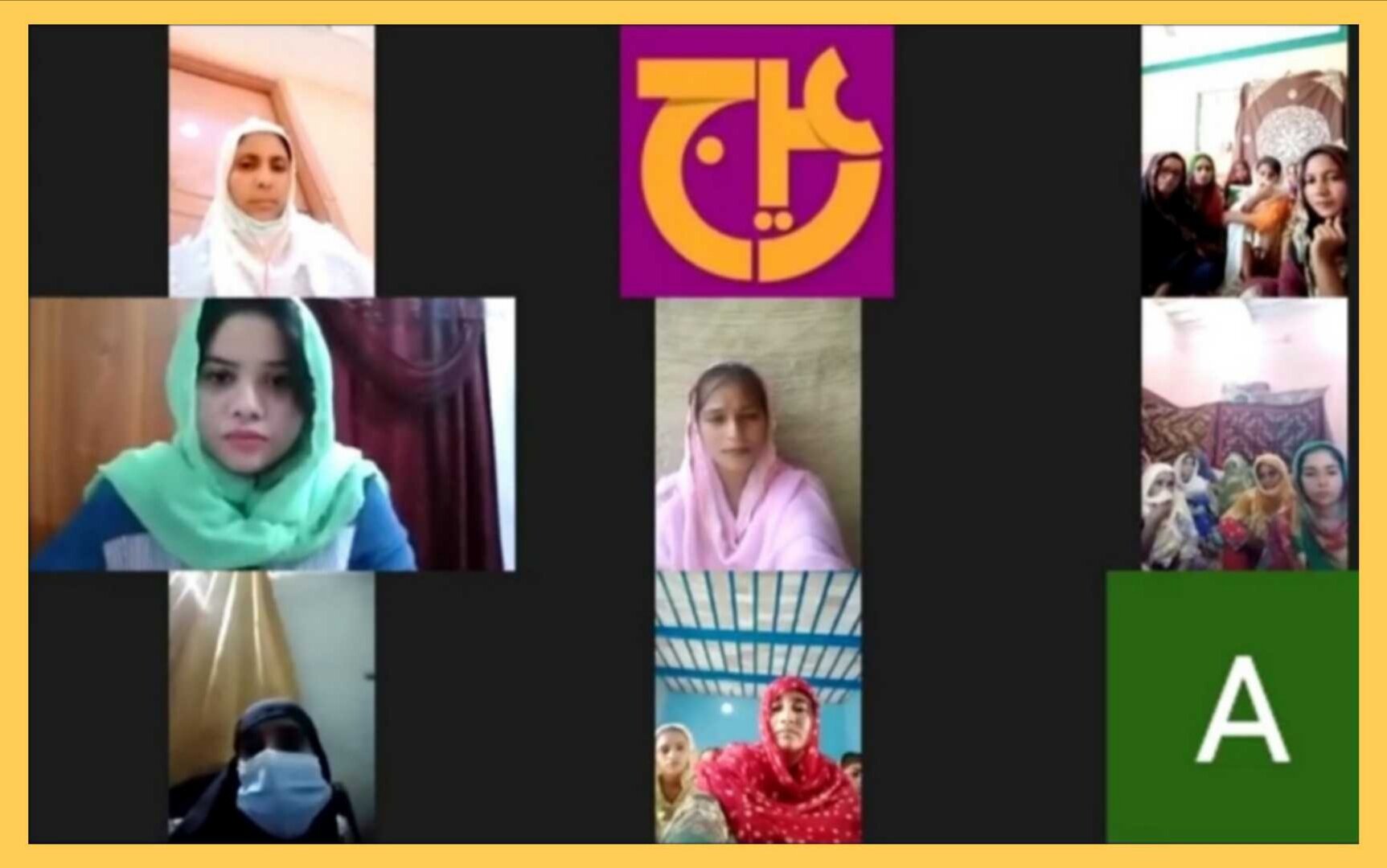Podcast on Pregnancy & Menstruation - A Gynecologist' session with rural women
Our rural incubators, Raaji Rooms, and Menstrual Champions, who were trained on digital tools, are now engaged and making significant progress in their villages. We recently invited Dr. Ayesha Azam Khan as a Guest Speaker on our Podcast "Pregnancy & Menstruation" with the help of our content partner Beti.
Dr Ayesha Azam Khan is a Gynaecologist Obstetrician and IVF Consultant providing state of the art fertility treatment services to national and international patients. With over 20 years of diversified healthcare experience, she also created her blog around female reproductive healthsystem.
Dr Ayesha Khan met with around 40 participants including menstrual champions, both Raaji Room leaders and rural women. Each Raaji Room was filled with almost 10-15 participants to join the session and menstrual champions also joined from different villages like Shadan Jatoi, Dundh, Wahid Bux Gopang, Pir Jo Goth, Saindad Khan Laghari, Dost Muhammad Maitlo, Bharmi, Khair Bux Mari etc. Dr. Ayesha Khan discussed menstruation health, and the link between ovulation, fertility, pregnancy, and childbirth. She also highlighted hormonal imbalances and menstruation problems such as Endometriosis and PCOS, and how they affect ovulation and pregnancy. She went on to explain how a woman could track her ovulation period and what the symptoms of the "fertile-window" could be. She also discussed the various causes of bleeding during pregnancy, such as vaginal infection, miscarriage, and a low-lying placenta. She advised that bleeding during pregnancy is concerning and that women should seek medical help right away.
Participants from rural areas also asked questions about menstrual problems, missed periods, and discharge issues at the end of the session. Dr. Ayesha responded to them in the live session. Although the podcast was only an hour long, it was incredibly helpful for our rural audience, who generally do not have direct access to a healthcare system or contextualised informative resources. After the podcast, many participants shared their views and thought that such sessions improved their health knowledge, digital skills and highlighted a taboo subject.
This was the first step towards building digital linkages between rural women and healthcare specialists. We hope to continue hosting more sessions for our rural and remote audiences in order to improve their health and hygiene knowledge.
.png)
